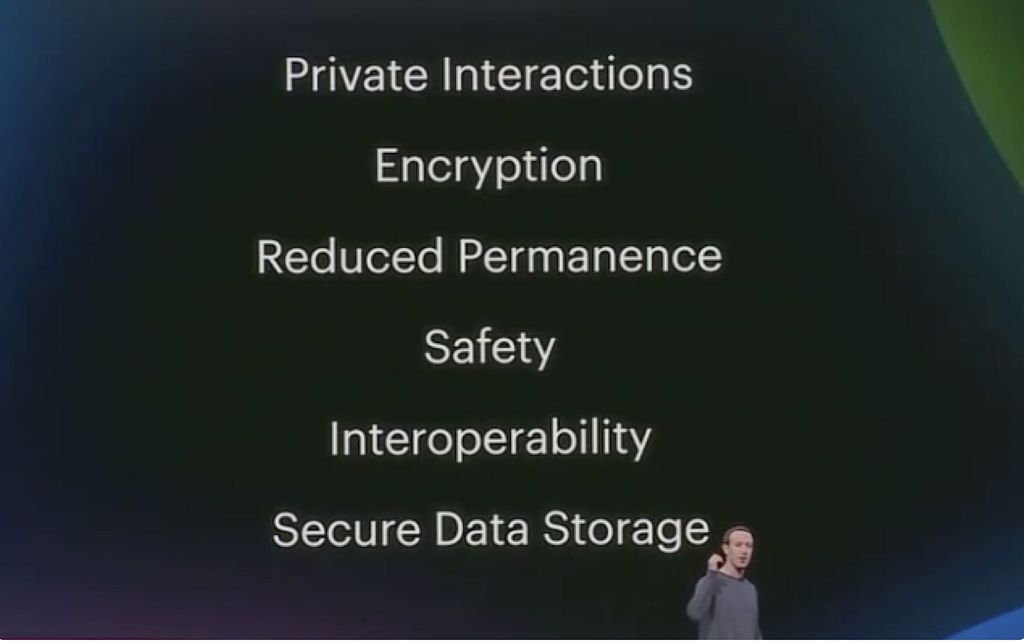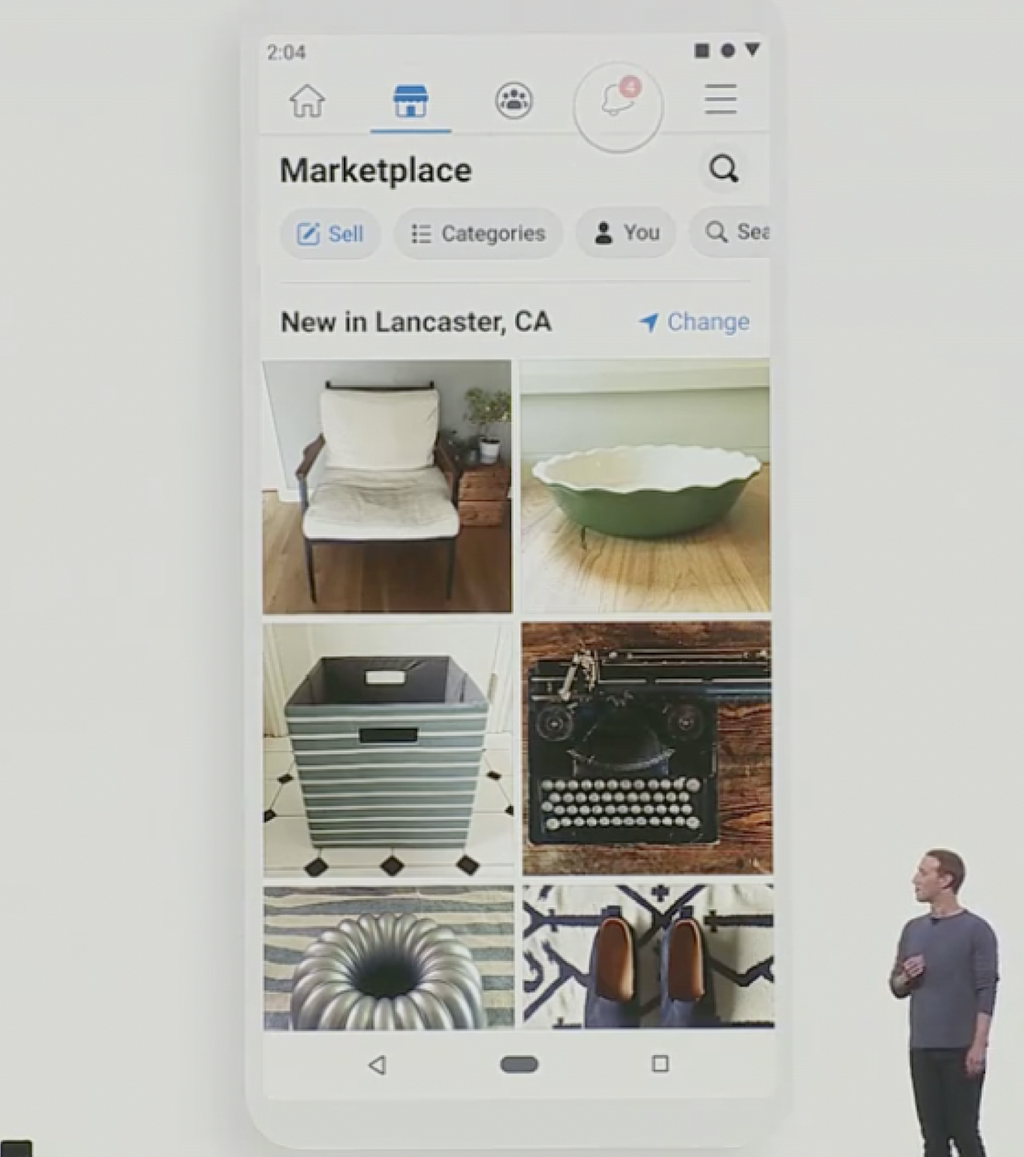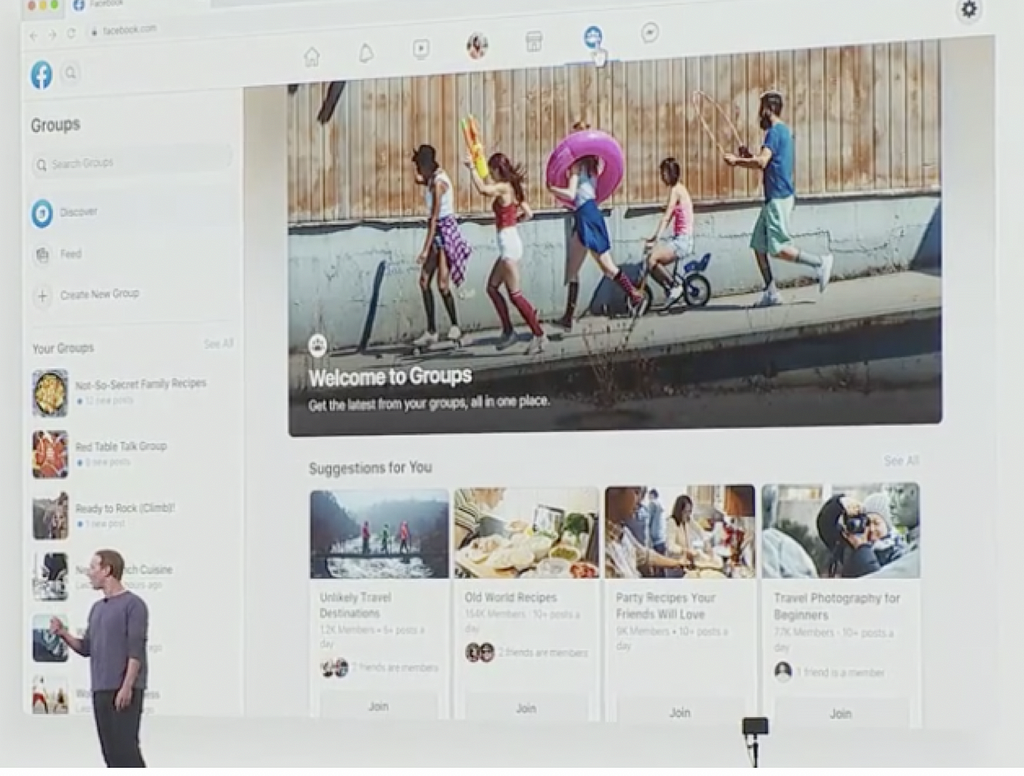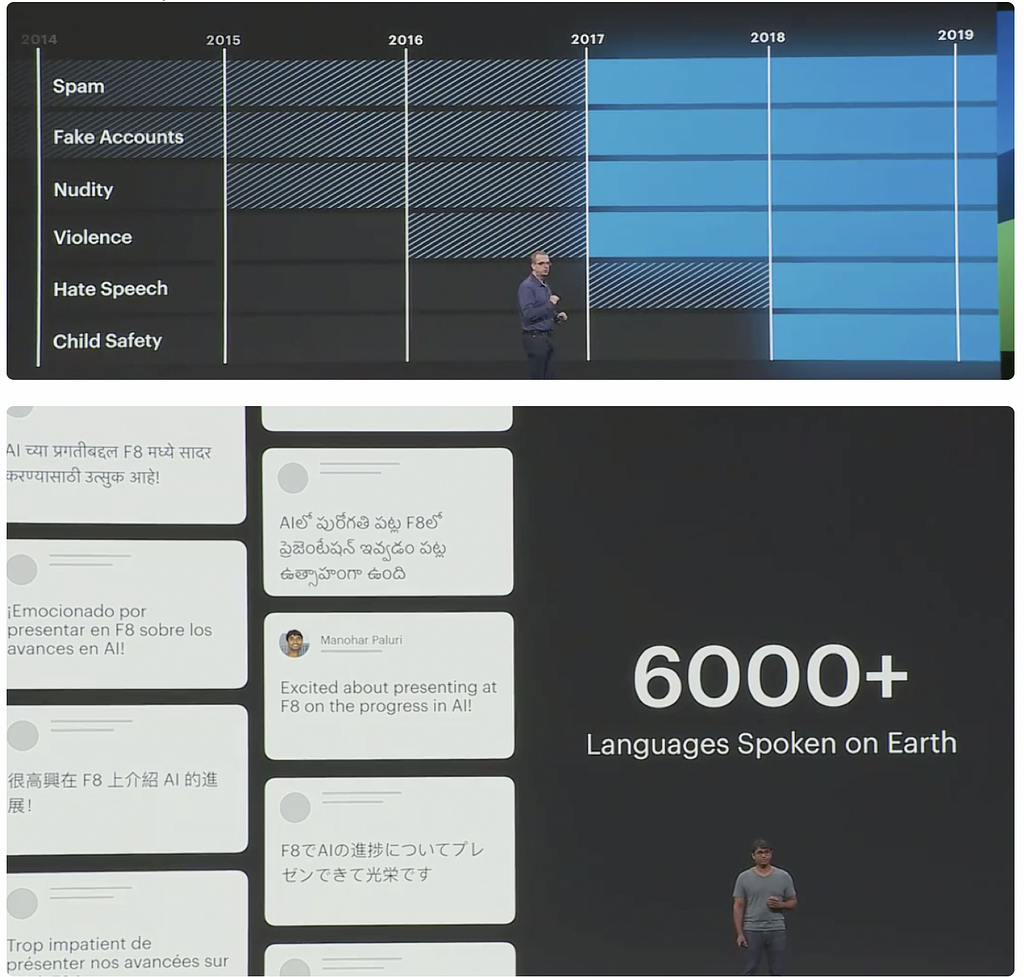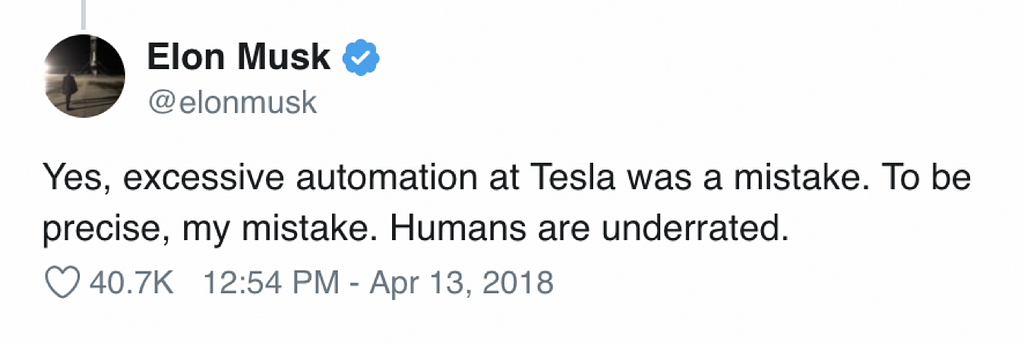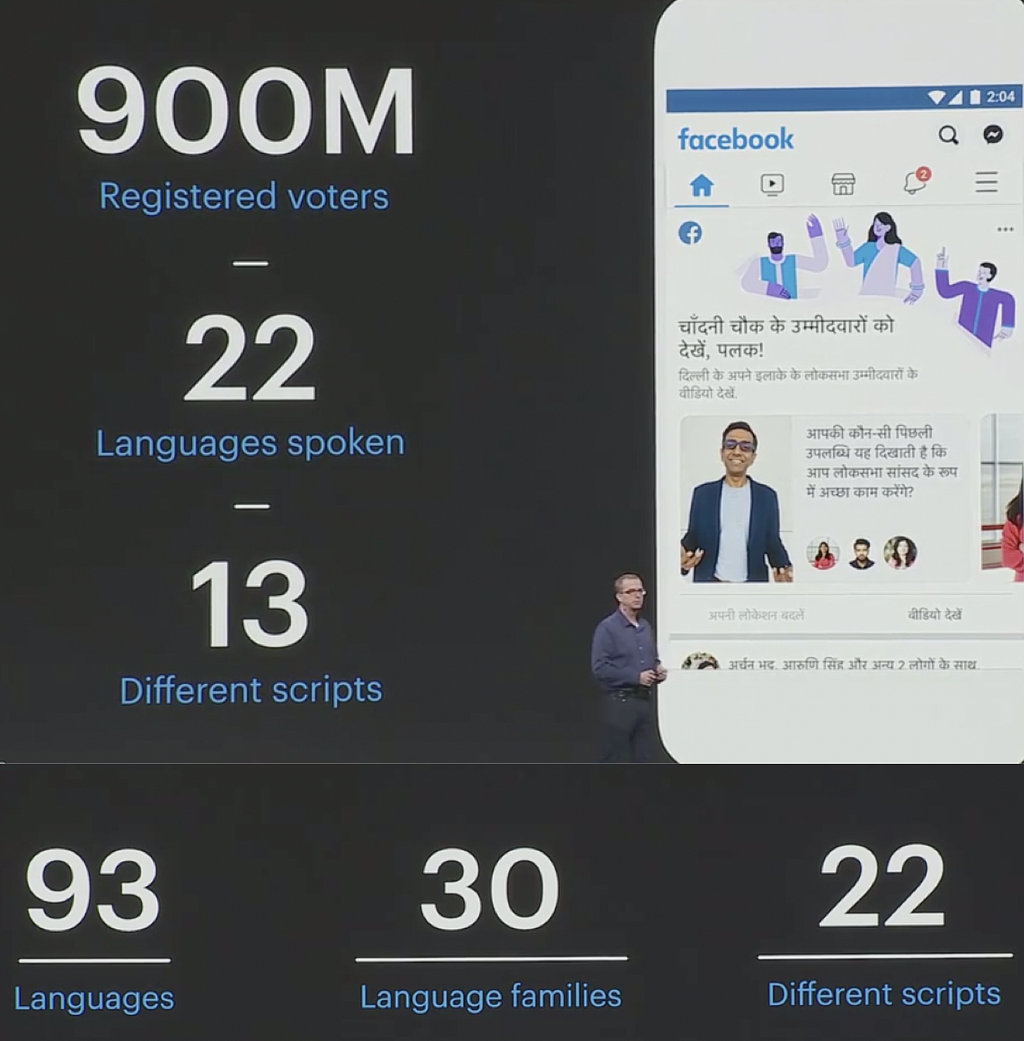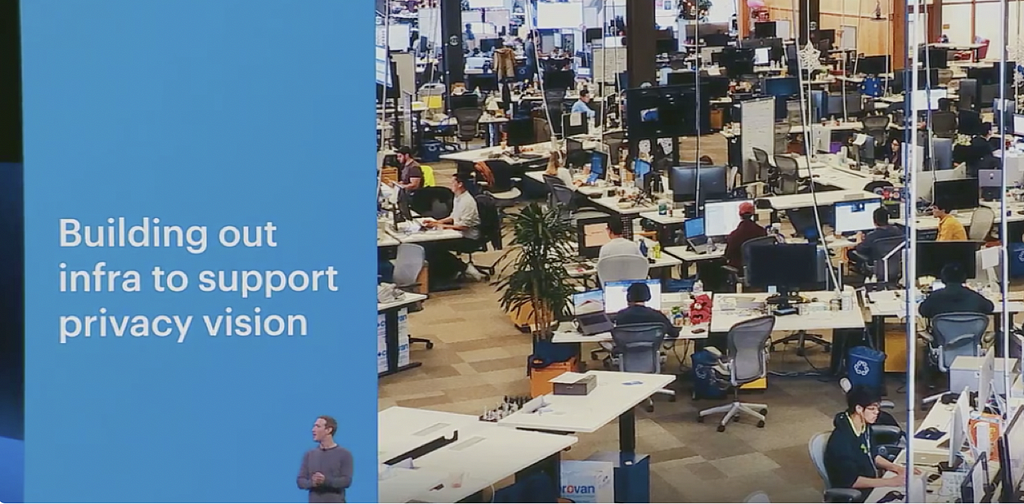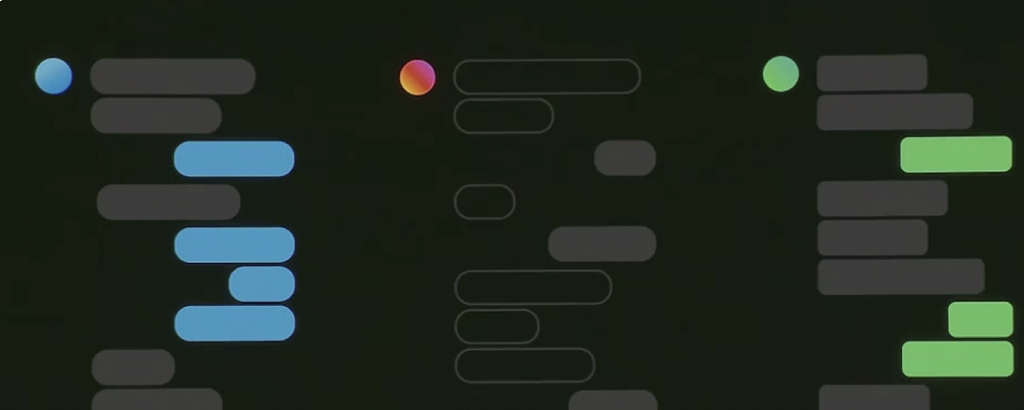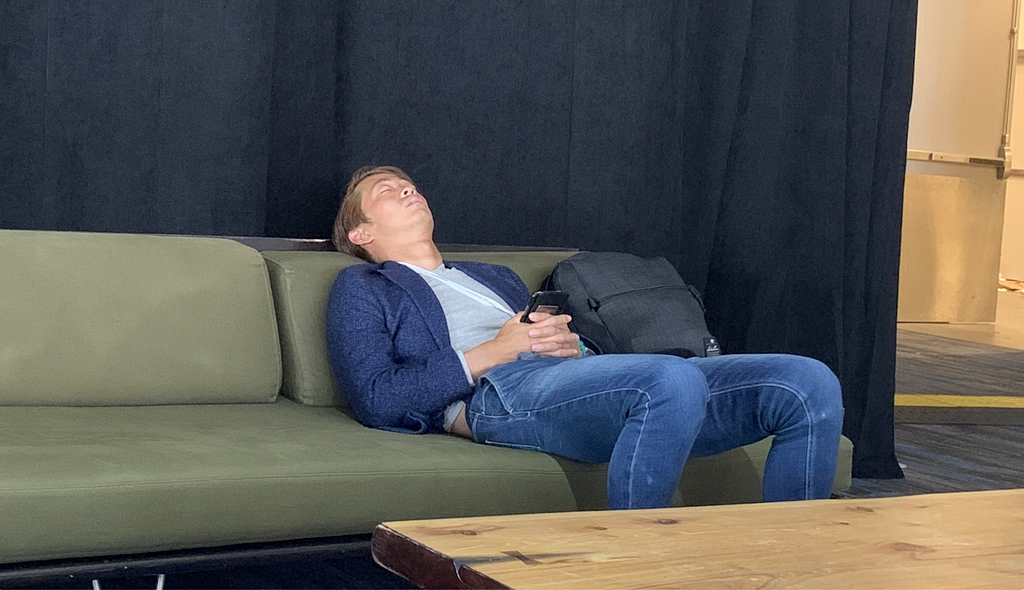Latest news about Bitcoin and all cryptocurrencies. Your daily crypto news habit.
Facebook F8 2019 — Thoughts, Learnings, and Predictions
I attended F8 this year with the intention of understanding how Facebook is going to rebuild its users’ trust given how careless and reckless the platform has been over the last 13 years.
I’ve structured the message below into three topics:
- An Overall Facebook Update
- Top 3 Takeaways from F8
- Top 3 Predictions
I also wanted to prioritize ideas that organizations such as cnn/nytimes/techcrunch/recode/etc didn’t seem to talk enough about.
An Overall Facebook Update
I attended F8 2019 with the hopes that Facebook would show levels of responsibility, transparency, and radical change. The conference started with taking responsibility of the core issues with the platform, but radical change wasn’t done. A newsfeed that is built on vanity metrics and hyper-targeted advertising, is fundamentally at odds with content quality and user experience. The attempt to hide behind improvements of Machine Learning does not fundamentally solve the issues of: fraud, fake news, abuse, etc. Unfortunately, after the 2-day event, my concerns have only grown.
It’s important to start with a quick re-cap, highlighting Facebook’s impact and the core events over the last 13 years:
The impact Facebook has on the world:
- 36% of the world touches a Facebook app every month
- 2.7 billion people use one of the Facebook apps’ every month.
- 2.1 billion people use one of the Facebook apps’ per day.
2. If Facebook was a religion, it would be largest religion in the world
- Christianity = 2.4 billion people
- Islam = 1.8 billion people
- Agnostic = 1.2 billion people
- Hinduism = 1.14 billion
- Buddhism = 521 million
3. Facebook is the second largest continent in the world
- Asia = 4.4 billion people
- Africa = 1.2 billion people
- Europe = 738 million
- North America = 579 million
4. An average user will spend close to 2 years on a Facebook property within their lifetime
5. Facebook Global Ad Revenue Per User Per Year:
- North American User = $84.41
- European User = $27.26
- Asia User = $7.61
The top issues for the last 13 years
2006
- Facebook introduces Newsfeed
2007
- Facebook introduces Beacon, which allows Facebook to track purchases across your digital life
- Facebook introduces the like button. Juston Rosenstein, the creator, later fears the psychological effects likes have on people and deletes application. https://www.theverge.com/2018/3/28/17172404/justin-rosenstein-asana-social-media-facebook-timeline-gantt
2011
- FTC settles privacy charges.
- Facebook lied to its users, telling them that they would keep their information private, when it fact it was public. https://www.ftc.gov/news-events/press-releases/2011/11/facebook-settles-ftc-charges-it-deceived-consumers-failing-keep
- Facebook innovation should not come at the expense of consumer privacy
2012
- Social Media usage is linked to increase in suicide rates, if the wrong content is spread virally on the platform. https://www.ncbi.nlm.nih.gov/pmc/articles/PMC3477910/
2013
- Facebook bug expose the private information of at least 6 million users. When a user joins Facebook, that contact list was abused and shared publicly.
2014
- Facebook launched a mood-manipulation experiment.
- The social contagion is a real phenomena. Thereby a users’ mood/personality is affected by what they see/watch/listen on Facebook.
- https://www.nytimes.com/2014/06/30/technology/facebook-tinkers-with-users-emotions-in-news-feed-experiment-stirring-outcry.html
2015
- Facebook cuts off apps from essentially taking any/all data they want from any Facebook user
2018
- Europe launched GDPR to protect consumers data on internet website, forcing Facebook to comply
- Belgian court orders Facebook to stop tracking people across the entire internet
- Facebook knew of a massive data breach and did nothing.
- All mobile phone manufactures had user data access for years. Facebook finally shuts it down
- Facebook reveals that 30 million user accounts were breached
- Facebook has leaked documentation, showing how they are sharing personal user information to Microsoft, Yahoo, Amazon, Netflix, and Spotify
- Cambridge Analytics, used Facebook data to hyper target ads used during the Trump election
2019
- 540 Million Users’ records are exposed. https://finance.yahoo.com/news/facebook-data-breach-2019-540-202405997.html
- New Zealand Facebook Live mass shooting. https://www.theverge.com/2019/3/17/18269453/facebook-new-zealand-attack-removed-1-5-million-videos-content-moderation
- Social Media is a threat to Democracy. Updated information showcases how Facebook did have a hand in Brexit. https://blog.ted.com/social-media-is-a-threat-to-our-democracy-carole-cadwalladr-speaks-at-ted2019/
- “Liberal democracy is broken!”
- Facebook is just getting a slap on the wrist with a $5 billion dollar fine.
Keynote
The responsibility of serving content to 36% of the world’s population cannot be solved by Artificial Intelligence and Product Features.
The fundamental question I was asking myself when reading this slide: Why did it take 13-years for Facebook to care about user privacy, encryption, and safety?
The new Facebook mobile and desktop application have been updated to become even more addicting. This is the equivalent of entering a casino, where the lights are tuned so you stay longer. https://io9.gizmodo.com/how-casinos-use-design-psychology-to-get-you-to-gamble-1667182023
I then waited for the Day-2 Keynote, which is more technology focused. Unfortunately, Mike Schroepfer (CTO) of Facebook basically used the progress of Artificial Intelligence as the reason why Facebook has failed at stopping abuse, fake news, and all the other core issues that happen on the platform. The boxes below highlight when AI was advanced enough to help.
In 2019, there is absolutely no way Artificial Intelligence can understand the 6,000 languages that are spoken on earth. I was really hoping that Facebook would have their Elon Musk moment, where Elon realizes that you can’t completely automate or use 100% artificial intelligence.
Now that both days are over, Facebook has essentially said the following:
- Facebook is sorry for the 14-years of mistakes they made.
- Facebook will be fined $5 billion dollars for the mistakes from 2018/2019, which is about 1% of its market cap ($550 billion)
- The progress of Artificial Intelligence is the reason why abuse, fake news, data leakage happened on the platform.
Some Concerns:
- India’s Election (4/11–5/23) of the worlds largest democracy.
- India’s upcoming election with 900 million people, most of whom touch a Facebook property daily, will not be saved by Artificial Intelligence.
- We are currently in the election and we can only hope that social networking apps like Facebook, Instagram, and WhatsApp don’t make the results skewed for the election.
- I was really hoping that Facebook would take a more pro-active role on keeping their platform safe, secure, and trustworthy. It would be different if they took a stand to reduce the amount of information one sees in the feed or the number of advertisers that can promote X product, unfortunately they haven’t.
- https://www.nytimes.com/2019/04/01/technology/india-elections-facebook.html
What did I wish Facebook would say?
- Reduced Advertising
- Sheryl Sandberg copied Google’s Advertising playbook and while it works to make money, it sacrifices user integrity. When a consumer goes on YouTube, Amazon, or Google, they are searching with a very specific intent. YouTube, you search for something to watch. Amazon, you search for something to buy. Google, you are searching for something internet connected. Facebook owned properties are different, you go there to be connected to other people. It’s the human connectivity aspect of Facebook, that gives consumers a fake sense of trust, which Facebook takes advantage of for monetarily gain.
- You can make the argument that influencer based advertising, is the only advertising, that should be allowed on Facebook. If a consumer engages with an account, that means the user should be allowed to see advertisements from that account. Since Facebook is money focused, they allow anyone to abuse consumers data and any brand to pollute the feed with fake news, scammy products, and services.
2. Democratic Ruling @ Facebook
- Given that Facebook can be a Religion or a Continent, just based on sheer audience size, they need to remove the massive amounts of control that Mark Z has and follow a more political perspective on how to insure that Facebook’s constituents are treated fairly. The answer isn’t Artificial Intelligence or having Mark Zuckerberg as the ruler.
3. Radical User Control
- Users should be able to dictate who gets to see their information and who gets to target them for advertisements. Right now, Facebook allows any advertiser to target you based on your interests, which you probably didn’t approve of.
On A More Positive Note
- Social Connections Grow
- We are all humans that strive for human connection
- With the updates coming up from Facebook, people will be able to connect more across events, photos, groups, marketplaces, and conversations
- If done in a democratic way, this will hopefully show more good than bad
2. The Public Feed is going away
- As Facebook continues to put more of an importance of ephemeral content and private conversations (copying SnapChat), the importance of the ‘feed’ will go away over time, which is a good thing for everyone
3. Facebook realized how important Creators are
- Both Facebook and Instagram are focused on insuring Creators are treated fairly and have opportunities to monetize their audience
- Facebook focused on Watch and Stories
- Instagram focused on Commerce
Top 3 Takeaways from Facebook
- Blockchain will be at the center of Facebook’s Strategy for their entire platform and payments.
- Building out infrastructure on the data-level to have security from the ground up.
- Code privacy and data use principles as first class concepts into the infrastructure. This is one of the primary uses cases of using a Blockchain based network.
- I didn’t see anyone catch this sound bite from Mark, but he basically said that they are rewriting all of Facebook’s back-end code to be more user-centric, which is a distributed ledger and access control.
2. Commerce is everything. Facebook is copying the BAT playbook.
- Right now, Baidu, Alibaba, and Tencent are beating Facebook in terms of their end-end control on a consumers daily life. With the updates that Facebook made during F8, you can see that they are just trying to be like BAT and not the other way around.
- Facebook is not a social network anymore. It is a completely re-written internet, where a consumer spends their time, money, attention to buy products/services for their day-day life, as well as connect with people/groups, etc.
- I highly recommend you read this article: https://www.ibc.org/content-management/bat-vs-faang-the-battle-for-digital-dominance/3103.article
3. Augmented Reality will finally find its stride.
- Facebook bought Oculus in 2017 and has spent the last 3 years investing in the platform. With the announcement of Spark Ar. https://sparkar.facebook.com/ar-studio/ They have made it increasingly easy for a developer to develop AR and deploy them across Facebook and Instagram
- There is a lot of potential with AR and Facebook is hoping that 2019 becomes a banner year for the technology.
Top 3 Predictions — 5 Year Horizon
- Advertising will not be the primary source of revenue for Facebook, it will be downplayed to a third or fourth spot.
- As Facebook copies the BAT playbook I see the following forms of revenue generation:
- Payments/Checkout
- Dating
- Marketplace (eBay)
- Instagram Shopping (Shopify Competitor)
- Facebook StableCoin (https://www.theblockcrypto.com/tiny/project-libra-facebook-to-launch-stablecoin-based-payments-network/
- Money Remittence
- Facebook TV (Netflix, YouTube, Disney Competitor)
2. Facebook removes the public newsfeed and public likes all together
- If Facebook continues down the trajectory of copying BAT and being serious about user privacy and security, then the public feed goes away, and people connect on Facebook with the intent of a specific action, not staring at a corrupt newsfeed.
3. Instagram, Facebook, and Whatsapp, will converge to one application. The business case for the apps as standalone, do not make any sense.
- Messaging apps interoperate now and hence the difference between them is now marginal. Screenshot above shows how you can message between all 3 applications. (Messenger, instagram, WhatsApp). The first thought that comes to mind, is WHY have 3 messaging apps?
- This will converge and Facebook will either push them all as one application or separate messaging out of all of them.
- Instagram isn’t a fun photo sharing application anymore, its a commerce driven application laser focused on how to make a user spend more money.
I hope we can all take a stand and realize that our humanity is being lost by Facebook, when they choose to use algorithms to police 2.7 billion people.
-Vishal
Seemed like an appropriate closing photo, clearly this person had too much fun here.
Facebook F8 2019 — Thoughts, Learnings, and Predictions was originally published in Hacker Noon on Medium, where people are continuing the conversation by highlighting and responding to this story.
Disclaimer
The views and opinions expressed in this article are solely those of the authors and do not reflect the views of Bitcoin Insider. Every investment and trading move involves risk - this is especially true for cryptocurrencies given their volatility. We strongly advise our readers to conduct their own research when making a decision.

